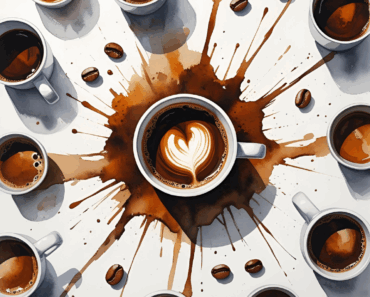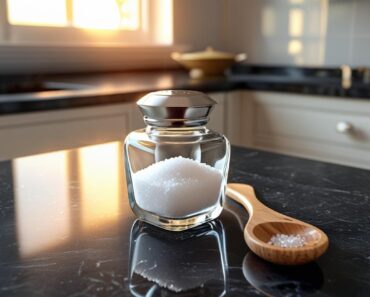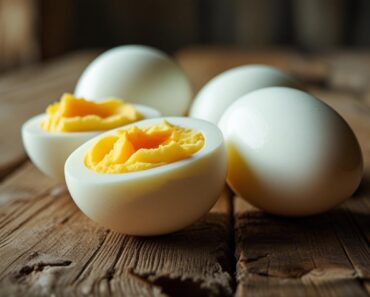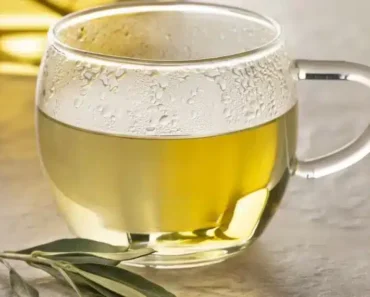Recovering from a stroke is a multifaceted journey that involves physical rehabilitation, medication management, lifestyle changes, and—crucially—a transformation in dietary habits. Nutrition can play a significant role not only in speeding up recovery but also in reducing the risk of a second stroke. This article provides a thorough, evidence-based overview of the ideal diet for stroke patients, including recommended food choices, helpful eating patterns, nutritional considerations, and practical tips for long-term health.
Why Diet Matters After Stroke
After a stroke, the body and brain require extra nutritional support for healing, regaining strength, and protecting against further vascular damage. A well-designed post-stroke diet can help:
-
Promote neuroplasticity (the brain’s ability to rewire itself)
-
Support muscle, skeletal, and immune recovery
-
Control blood pressure, cholesterol, and blood sugar
-
Reduce risk of future strokes and related health problems123
Core Principles of a Stroke Recovery Diet
Experts recommend that stroke patients—like those seeking stroke prevention—adopt an eating pattern rich in plant foods, moderate in lean protein, and low in processed foods, added sugars, and unhealthy fats. The most studied and beneficial diets for stroke recovery are the Mediterranean, DASH (Dietary Approaches to Stop Hypertension), and MIND (Mediterranean-DASH Intervention for Neurodegenerative Delay) diets.456
Key Components:
-
Vegetables: Choose a wide rainbow of colors and types for antioxidants, vitamins, minerals, and fiber. Aim for at least 5 servings of nonstarchy vegetables daily.
-
Fruits: Enjoy a range of fruits, especially berries and citrus fruits, for vitamin C, polyphenols, and fiber.
-
Whole Grains: Switch to wholegrain bread, brown rice, oats, quinoa, and barley. Limit refined grains like white bread and pasta.
-
Healthy Proteins: Prioritize lean poultry, eggs, and legumes. Include fatty fish like salmon, trout, or sardines twice a week to provide essential omega-3 fatty acids.
-
Dairy or Dairy Alternatives: Opt for low-fat options, or calcium-enriched plant alternatives like soy or almond milk.
-
Nuts & Seeds: Add small servings of unsalted nuts and seeds for healthy fats and vitamin E.
-
Healthy Fats: Use olive oil and avocado as main fat sources. Limit butter and tropical oils.
-
Hydration: Drink plenty of water; avoid sugar-sweetened drinks and minimize alcohol.
The Best Foods for Stroke Recovery
1. Omega-3 Rich Foods:
Fatty fish (salmon, sardines), flaxseeds, walnuts, and chia seeds help reduce inflammation, promote neuron repair, and support overall brain function67.
2. Antioxidant-Rich Foods:
Blueberries, spinach, green tea, and dark chocolate provide antioxidants that help neutralize harmful free radicals and protect against further brain damage7.
3. Fiber-Rich Whole Grains:
Quinoa, oats, brown rice, and wholegrain bread support digestive health, keep cholesterol in check, and stabilize blood sugar869.
4. Lean Proteins:
Chicken without skin, eggs, tofu, beans, lentils, and Greek yogurt provide essential amino acids for muscle and brain recovery86.
5. Vitamin-Rich Fruits and Vegetables:
Berries, citrus fruits, tomatoes, leafy greens, and apples deliver vital vitamins (A, C, E, and K) and plant compounds that support blood vessel health, immune function, and cognitive recovery61.
6. Healthy Fats:
Olive oil, avocado, and some nuts supply monounsaturated fats that lower cholesterol and protect blood vessels.
7. Dairy/Alternatives:
Low-fat yogurt, milk, or calcium-enriched plant-based options for strong bones and nerve function10.
What to Limit or Avoid
-
Salt/Sodium: Excess salt increases blood pressure and risk of another stroke. Use herbs and spices instead of salt for flavor.
-
Added Sugars: These damage blood vessels and promote weight gain. Read labels and minimize intake of sweets, sugary drinks, and processed foods.
-
Saturated and Trans Fats: These raise “bad” cholesterol. Cut back on fatty cuts of red meat, processed meats, butter, baked goods, and fried foods. Focus on plant-based and fish-based fats instead.
-
Alcohol: Alcohol increases risk of stroke recurrence and can interfere with medication. Strict limits or complete avoidance is recommended, unless otherwise advised by a doctor10111.
Special Nutritional Considerations
1. Individualization and Assessment:
All stroke patients should receive a thorough nutritional assessment. Those who are malnourished or at risk may need higher-calorie, protein-rich supplementation12.
2. Addressing Dysphagia:
Many stroke survivors experience swallowing difficulties. Foods may need to be pureed or softened, and liquids thickened, to ensure safe nutrition intake. A speech-language pathologist should guide safe swallowing strategies86.
3. Managing Diabetes and Cholesterol:
Patients with diabetes or high cholesterol must focus even more on glycemic control, minimal saturated fat, and careful carbohydrate intake. Whole grains, legumes, and nonstarchy vegetables are key.
4. Cognitive and Memory Support:
Brain-healthy foods—especially those high in omega-3s, vitamin E, and antioxidants—may help with neural repair and memory improvement67.
Sample Meal Ideas for Stroke Patients
-
Breakfast:
Oatmeal with berries and chia seeds, or a smoothie with spinach, berries, and Greek yogurt. -
Lunch:
Grilled salmon over a quinoa salad with tomatoes, chickpeas, leafy greens, avocado, and a drizzle of olive oil. -
Snack:
A small handful of walnuts and an apple, or low-fat yogurt. -
Dinner:
Chicken and vegetable stir-fry with brown rice and a side of steamed broccoli. -
Dessert:
Fresh fruit salad or unsweetened applesauce.
Practical Tips for Stroke Recovery Diet
-
Plan meals in advance: Keep healthy staples stocked, and prep vegetables and grains ahead.
-
Cook at home: You control salt, sugar, and fat intake.
-
Flavor food with herbs, spices, citrus, and vinegar rather than salt.
-
Eat mindfully: Focus on slow, enjoyable meals to avoid overeating and help digestion.
-
Monitor weight: Both underweight and overweight can affect recovery.
-
Consult professionals: Periodically review your diet with a registered dietitian or healthcare team.
-
Stay physically active: As recommended, since movement supports both recovery and heart health.
Conclusion
Nutrition is a cornerstone of rehabilitation, independence, and long-term health after a stroke. A diet high in fruits, vegetables, whole grains, lean proteins, healthy fats, and low in salt, sugar, and saturated fat will support healing, reduce complications, and help protect against a second stroke. Personalized nutrition, regular screening for malnutrition, and practical, enjoyable meal planning can transform the quality of life for stroke survivors and their families. Always consult your medical provider or a registered dietitian for dietary adjustments, especially if you have other chronic conditions or special needs.
Adopting these dietary principles isn’t just for recovery—it’s a lifelong strategy for optimal vascular and brain health86713.
- https://nutritionguide.pcrm.org/nutritionguide/view/Nutrition_Guide_for_Clinicians/1342087/all/Stroke
- https://www.medicalnewstoday.com/articles/diet-for-stroke-patient
- https://health.clevelandclinic.org/diet-after-stroke
- https://www.world-stroke.org/world-stroke-day-campaign/prevent-stroke/stroke-and-diet
- https://pmc.ncbi.nlm.nih.gov/articles/PMC8323654/
- https://www.flintrehab.com/foods-that-help-stroke-recovery/
- https://www.hcah.in/blog/diet-for-stroke-patients-boosting-brain-health-through-food/
- https://www.stroke.org/en/-/media/Stroke-Files/Simplygood-Cookbook/SimplyGoodCookbook_11052020.pdf?sc_lang=en
- https://www.neurolutions.com/after-stroke/post-stroke-nutrition-and-how-it-improves-stroke-recovery/
- https://strokefoundation.org.au/what-we-do/for-survivors-and-carers/after-stroke-factsheets/diet-after-stroke-fact-sheet
- https://www.oxfordhealth.nhs.uk/leaflets/title/dietary-advice-following-a-stroke/
- https://pmc.ncbi.nlm.nih.gov/articles/PMC9833461/
- https://www.stroke.org/en/healthy-living/healthy-eating
- https://lonestarneurology.net/stroke/diet-for-stroke-prevention/
- https://www.ahajournals.org/doi/10.1161/01.str.31.11.2751
- https://www.massgeneralbrigham.org/en/about/newsroom/articles/foods-that-help-prevent-stroke
- https://pmc.ncbi.nlm.nih.gov/articles/PMC4176491/
- https://www.clevelandclinicabudhabi.ae/en/health-hub/health-resource/treatments-and-procedures/eating-well-to-prevent-and-recover-after-a-stroke
- https://www.espen.org/files/ESPEN-Guidelines/ESPEN-guideline_clinical_nutrition_in_neurology.pdf
- https://www.nestlehealthscience.com/sites/default/files/asset-library/documents/adult-enteral-nutrition/publications-commercial/b4126nes_oncology_congress_stroke_hcp_6_pager_pres8_final.pdf








